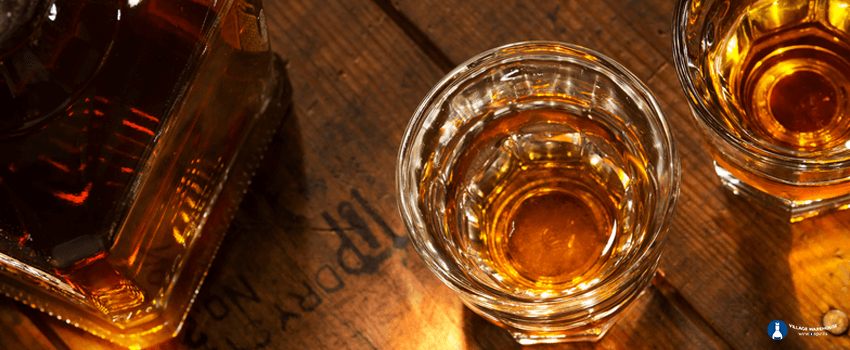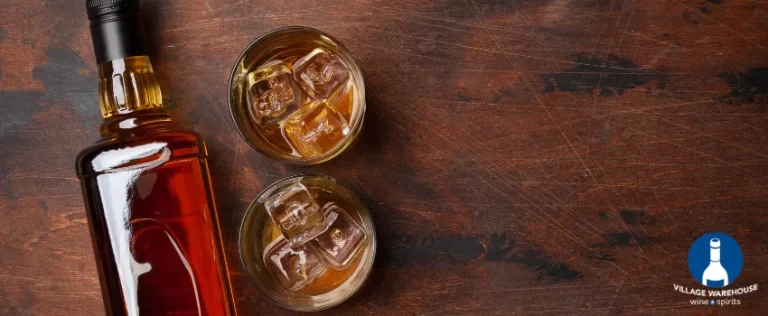Have you ever browsed a bar menu to decide which whiskey would go best in your cocktail?
Otherwise, have you ever wondered why some words are spelled whiskey while others are spelled whiskey? This comprehensive guide will help you get through a nightcap without getting your spirits mixed up.
The first thing you should know about scotch vs. whiskey is that all scotches are whiskeys, but not all are scotches.
In a nutshell, the difference between scotch and whiskey is determined by factors such as the type of grains used in the distilling process, and how and where it was produced. In terms of that, always remember that the whiskey with an ‘e’ is used in the United States and Ireland, whereas ‘whiskey’ is used in Scotland, Canada, and other places worldwide.
Definition of Scotch
Scotch whiskey must be made in Scotland by distillers who wish to market their product as such. Speyside, Islay, Campbeltown, the Lowlands, the Highlands, and the Islands are the five regions where Scotch whiskey is produced.
Malted barley or grain is the most common ingredient in Scotch whiskey. The spirit is aged in oak barrels for over three years to give it its earthy and smoky flavor. Five different versions of Scotch whiskey exist, single malts, single grains, blended malts, blended grains, and mixed Scotch whiskey.
Types of Scotch
Many different types of Scotch whiskey exist, each with its distinct flavor and production process. The following are a few well-known types of Scotch:
Blended Scotch Whiskey
Malt Scotch and grain Scotch whiskey are combined in blended Scotch whiskey for a smoother taste.
Cask-strength Scotch
A whiskey that is bottled at cask strength is known as “cask-strength Scotch.”
Scotch 18-year old Scotch Whiskey
As the name implies, this Scotch whiskey is aged in oak barrels for eighteen years. There are a variety of flavors and types to choose from.
Single Grain Scotch Whiskey
To make a single-grain Scotch whiskey, the entire distillation process must occur at a single distillery. Water and malted barley make up the base of this blend of malted and unmalted cereals.
Single-malt Scotch Whiskey
It is made from malted barley and comes from a single distillery. Single-malt Scotch whiskey is only found in ten percent of all Scotch whiskey spirits, making it rare.
Definition of Whiskey
An alcoholic beverage made from fermented grain that contains about 40% alcohol by volume is known as whiskey. Many different types of whiskeys (or whiskeys) exist, depending on the grain mash, the location of manufacture and aging process, and other variables.
Whiskey is made in stills and aged for at least two years by distilleries. Unless a whiskey has been aged for at least four years, it must include an age declaration on the label.
Types of Whiskey
Whiskey is produced all over the world by distilleries, each of which creates its unique blend. Here are a few of the most popular types of whiskey:
Bourbon Whiskey
The state of Kentucky is the primary source of this American whiskey. It must contain at least 51% corn as part of the various grains that make up the mash.
Canadian Whiskey
At least 40% ABV, or alcohol by volume, is required for Canadian whiskey. Moreover, for it to have a Canadian designation, it must be made in Canada and aged for at least three years.
Irish Whiskey
A malt, cereal grain, and barley base form the basis of Irish whiskey, which you can only find in Ireland. Additionally, it is aged for a minimum of three years and has a more delicate flavor than other whiskeys.
Japanese Whiskey
Some Japanese distilleries use Japanese oak casks to age this type of whiskey. Even though Japanese whiskey is bottled in Japan, it does not necessarily originate there.
Scotch Whiskey
whiskey from Scotland is known as Scotch, and it can be either malt, grain, or a combination. Three years in an oak barrel is the minimum age requirement for Scotch whiskey.
Ultimate Difference Between Scotch vs. Whiskey
People frequently get Scotch and whiskey mixed up with one another, although they are two distinct types of alcoholic spirits. So, how is scotch different from whiskey? Here are four factors that determine their differences:
1. The Aging Process
Scotch is typically aged in oak casks that have previously been used to store wine or other types of spirits. For aging purposes, whiskey is typically stored in barrels made of charred white oak.
2. The Flavors
When it comes to flavor, scotch has a more refined profile than whiskey does. This is because of the process that is used for malting the grains at the distillery.
3. The Grains Used
Whiskey is an alcoholic beverage that is produced by distilling barley, wheat, grain, or corn. Malted barley was the only ingredient used in the production of Scotch whiskey when it was first created, but since the eighteenth century, distillers have also used malted wheat and malted rye.
4. The Way It Was Produced
During production, some Scotch whiskey distilleries malt the grains first before beginning the fermentation process. Malting the grains requires the soaking of the grains in water, which causes the grains to sprout in the case of barley and prepares the starches to ferment into sugars in the case of other grains.
Conclusion
Whiskey is known by many types, from scotch to bourbon to rye. It’s difficult to keep track of all the different whiskey names, but it’s even more difficult to understand what each one means. To complicate matters further, depending on where it is produced, whiskey is given different names.
In the final analysis, the difference between scotch and whiskey comes down to the production region. In addition to its unique blend of ingredients and processes, scotch whiskey stands out from other types of whiskey around the world.
Experience the Difference Between Scotch and Whiskey with Village Warehouse Wines and Spirits.
The main differences between scotch vs. whiskey can be traced back to the regions where the spirits are produced, their flavors, and the length of time they were aged. If you’d like to learn more about the subtle differences between scotch and whiskey, stop by any Avon liquor store and try it from their vast array of spirits. Let our staff assist you in purchasing the best wines and spirits based on your preference. Visit us now.





